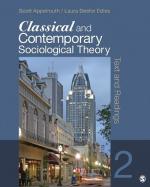|
This section contains 5,408 words (approx. 19 pages at 300 words per page) |

|
 Heinrich Rudolf Hertz. (Library of Congress)
Heinrich Rudolf Hertz. (Library of Congress)
As with so many other phenomena that define our civilization, we owe the idea of energy—from en(in) and ergon (work)—to ancient Greeks. In his Metaphysics, Aristotle gave the term a primarily kinetic meaning: "The term "actuality" (energeia) ... has been extended to other things from motions, where it was mostly used; for actuality is thought to be motion most of all" (Metaphysics, Theta 3, p. 149).
For Greeks the word and its cognate terms filled a much larger conceptual niche than they do in modern scientific usage. In some of Aristotle's writings energeia stands in opposition to mere disposition, hexis; in others it carries the vigor of the style. The verb energein meant to be in action, implying constant motion, work, production, and change. The classical concept of energeia was thus a...
|
This section contains 5,408 words (approx. 19 pages at 300 words per page) |

|


